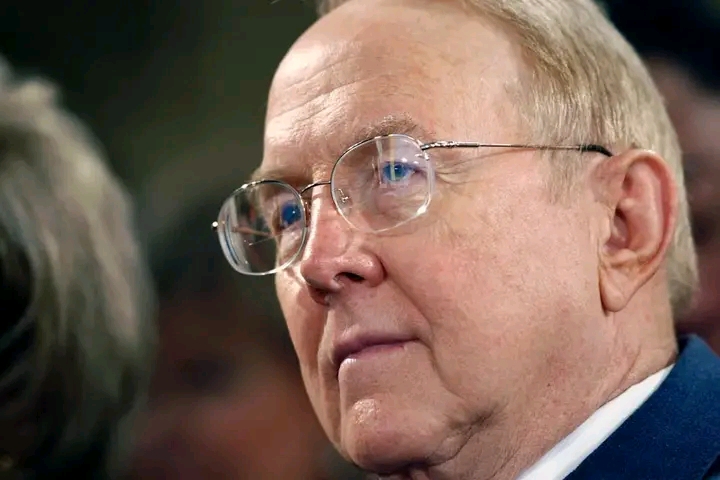Dr. James Dobson, one of the most recognizable and politically influential voices in American evangelical circles for nearly half a century, has passed away. A child psychologist by training but far better known as a cultural commentator, broadcaster, and conservative activist, Dobson left a mark on millions of Christian families through his books, radio programs, and the organization he founded—Focus on the Family. His career was defined by a blend of pastoral advice on parenting and family life alongside an unyielding advocacy for conservative political causes, especially opposition to abortion and LGBTQ+ rights.
Born in Shreveport, Louisiana, in 1936, Dobson was raised in a devout Christian household. His father was a Nazarene evangelist, and faith shaped nearly every aspect of his early upbringing. After earning a doctorate in child development, Dobson worked for years as a pediatric psychologist and later taught at the University of Southern California School of Medicine. Yet despite his academic and clinical credentials, Dobson was not destined to remain in the ivory tower. He soon discovered that his greatest impact would come not in lecture halls but through the microphone, reaching into living rooms across America with a mixture of homespun advice and deeply conservative moral teachings.
In 1977, Dobson formally launched Focus on the Family in Arcadia, California. The ministry grew at a remarkable pace, fueled by his popular radio program in which he counseled parents on child discipline, marriage, faith, and morality. By the mid-1990s, the organization had relocated to Colorado Springs, Colorado, and had ballooned into a sprawling operation with more than 1,000 employees. From its headquarters, Focus on the Family produced books, magazines, radio broadcasts, videos, and political advocacy materials, all aimed at promoting what Dobson described as a biblical model of family life.
The show that carried his voice across the country attracted millions of listeners and was eventually broadcast in dozens of countries. For many evangelical families, Dobson was not merely a trusted expert—he was a household name, a figure whose opinions on parenting, discipline, and faith carried enormous authority. His best-selling books, including Dare to Discipline and The Strong-Willed Child, urged parents to set firm boundaries, often endorsing corporal punishment as an acceptable form of discipline. While some praised his advice as practical and rooted in Scripture, critics argued that it encouraged harshness and outdated child-rearing methods.
But Dobson’s influence extended far beyond family counseling. He became an outspoken political activist who increasingly leveraged his ministry as a platform to weigh in on the most divisive cultural debates of his era. He railed against abortion, same-sex marriage, and what he called the erosion of traditional family values in American life. Under his leadership, Focus on the Family did not limit itself to pastoral support but grew into a powerhouse in the Religious Right, wielding considerable influence over legislation, elections, and national discourse.
Dobson’s counsel reached presidents, legislators, and judges. He served on White House panels, met with Republican leaders, and became a go-to figure for conservative politicians seeking to shore up evangelical support. He did not shy away from making bold statements about public officials, sometimes chastising Republicans when he felt they were compromising too much on moral issues. His political weight was significant enough that presidential candidates courted his approval, knowing it could sway millions of evangelical voters.
Among his most controversial positions was his steadfast opposition to gay rights. For years, Dobson condemned homosexuality as sinful and unnatural, portraying it as a threat to the family and to the moral fabric of the nation. Focus on the Family became a leading voice in advocating against the legalization of same-sex marriage and against protections for LGBTQ+ individuals. The ministry also defended and promoted conversion therapy programs, the widely discredited practice of attempting to change a person’s sexual orientation through counseling or prayer. When state legislatures began debating laws to ban such practices, Dobson positioned himself as one of their fiercest opponents, arguing that bans restricted religious freedom and parental rights.
On abortion, Dobson was equally uncompromising. He denounced Roe v. Wade and campaigned relentlessly for its reversal, championing candidates and policies that promised to restrict or outlaw abortion. He framed the issue not only as a political question but as a spiritual battle, often invoking biblical language to describe.
Yet perhaps the most striking aspect of Dobson’s story is the sheer scale of his reach. Few psychologists—let alone religious broadcasters—have ever commanded such a vast audience. Through radio waves, books, conferences, and political campaigns, he left an indelible imprint on American evangelical culture. His death marks not only the end of an individual life but also the fading of an era in which figures like him could singularly dominate the religious and political imagination of millions.



